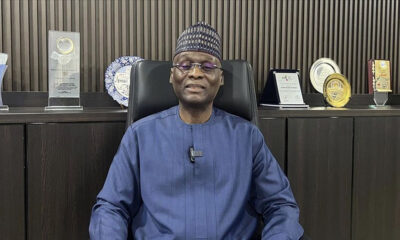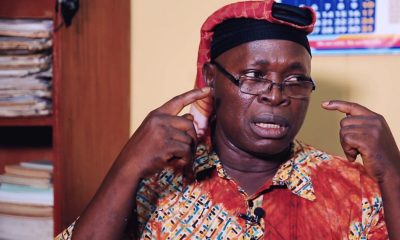Politics
2023 polls may be postponed over reworked electoral act – INEC
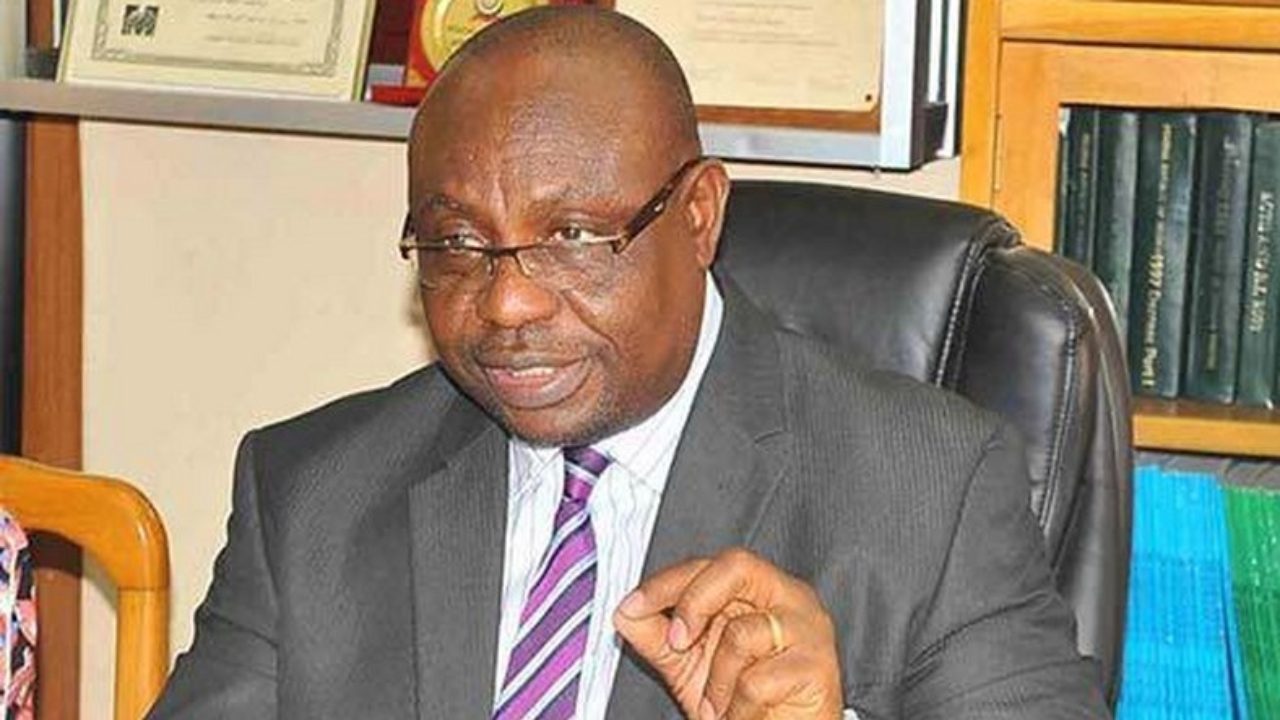
Independent National Electoral Commission, INEC, says it may be forced to postpone the 2023 elections if President Muhammadu Buhari fails to assent to the reworked Electoral Act Amendment Bill by Tuesday.
INEC National Commissioner and Chairman of Voter Education Committee, Festus Okoye, said this in an interview with Sunday Vanguard.
According to him, there are some fundamental timelines in the new electoral bill that will fundamentally affect the electoral legal framework.
Sunday Vanguard recalls that on November 23, 2021, Buhari declined assent to the bill, citing insecurity, cost of conducting direct primaries and infringement on the rights of Nigerians as his reasons.
The rejection was conveyed in letters written to the National Assembly.
He also said the decision was based on informed advice by relevant ministries, departments and agencies of government, and a careful review of the bill in light of the current realities in Nigeria.
The bill was thereafter reworked by the National Assembly and passed on January 25, 2022, for presidential assent.
Specifically, the lawmakers amended controversial Clause 84 of the bill, which deals with the mode of primary election to be used by political parties.
In the previous version, lawmakers had prescribed that political parties use only the direct mode of primary. But it was made optional in the reworked bill sent to the President for assent.
However, the bill, which was forwarded on January 31, 2022, is yet to receive presidential assent, raising concerns over the likely consequences should Buhari reject it again.
Speaking on the matter, Okoye said, “We understand that on January 31, 2022, the reworked Electoral Act Amendment Bill was forwarded to the President. Under Section 58 of the Constitution, the President has been given the right to assent to bills within 30 days. The 30 days have not elapsed.
“As an electoral management body, we have done our part and it is now left for the National Assembly and the executive to do their part so that the country can have a new legal regime to operate on.
“The tenure of the President and that of the governors (except Anambra, Bayelsa, Imo, Kogi, Edo, Ondo, Ekiti and Osun states) will expire on the 28th day of May 2023 while members of the national and state assemblies will stand dissolved on the 8th day of June 2023.
“By Sections 132(1) and 178(1) of the Constitution, the Commission is empowered to appoint a date for the holding of presidential, governorship, national and state assembly elections.
“INEC had already fixed February 18, 2023, as the date for the presidential election in Nigeria. Now, if you calculate that particular date from today ( last Thursday), it gives you 365 days to that particular election.
“The worrying aspect in this whole impasse is the fact that the new bill before the President contains very far-reaching timelines that will fundamentally affect the date for the election.
“Under Section 28 of the new bill, the Commission is mandated and under a constitutional and legal obligation to issue the notice for the election within 360 days and that is remaining just five days from today.
“The implication is that if the bill is not signed into law thereafter, the Commission has to shift the date for the presidential election to accommodate the 360 days given on the new bill for issuing the notice of the election.”
The INEC Chief, however, assured that the commission had been permitted by law to orbit around Sections 132(2) and 178(2) of the Constitution in fixing the date for elections so long as the dates remain within the 150 days and 30 days provided in the Constitution.
Okoye said: “In other words, the earliest date for the holding of election into executive positions is 30th of December 2022 while the last date is 29th of April 2023.
“For legislative elections, the earliest date is January 10, 2023, and the last date is 10th of May 2023.
“The Commission takes into consideration the possibility of a second election or runoff election in fixing dates for the conduct of elections. Section 58(4) of the Constitution gives the President 30 days to signify that he assents to or that he withholds his assent to a bill.
“The Commission is in good standing in relation to the dates for the holding of the 2023 general elections but is in support of expeditious resolution of the issues surrounding the Bill.”
Meanwhile, outrage trailed the development as eminent Nigerians and groups urged Buhari to sign the amended electoral bill to avoid a political crisis.
Outrage
A former Second Vice President, Nigerian Bar Association, NBA, Mr. Monday Ubani, described the 2010 Electoral Act as outdated but cautioned against postponing the 2023 elections.
His words: ”It will be very disastrous if the elections are postponed because our Constitution has a tenure of four years for every elective office. So, it will be improper to elongate the tenure of any officer. Therefore, the President must not create a crisis for the country unless he has an agenda he is pursuing. I agree with INEC on the non-workability of the 2010 Electoral Act, which is outdated.
“The President should sign the bill into law so that the country can utilize the new provisions added in the bill. I think the right thing to do is for the President to sign that bill into law.”
On his part, Chief Mike Ozekhome, SAN, described the possibility of postponing the polls as “dangerous, foreboding and constitutional conundrum.”
Provisions
Also reacting, Secretary-General, Yoruba Council of Elders, YCE, Dr. Kunle Olajide, said: “Whatever INEC does has to align with the provisions of the Nigerian Constitution and I am sure there are specific dates and period the elections have to be held, nobody or institution has the right to extend the life of any administration. So, the postponement will still be within the period allowed by the Constitution. INEC does not have the power to extend the tenure of the present administration or any administration for that matter.
“Nigerians want Mr. President to sign the Electoral Act Amendment Bill for obvious reasons.’’
Altered
Yoruba socio-political organisation, Afenifere, warned that the time-table for the next elections should not be altered.
Its National Publicity Secretary, Mr. Jare Ajayi, said: “The Electoral Act Amendment Bill being delayed by the executive is indicative of the slow pace with which government treats issues that have to do with Nigerians.
“The Electoral Act Bill has been on the table for a long time. Why is the President delaying it?
Under no circumstances should the election time-table be altered.
“We call on President Muhammadu Buhari to assent to the bill and ensure that INEC has the necessary support to ensure that we have – free, fair and credible elections”
President of the African Bar Association, AfBA, Hannibal Uwaifo, said: “If the President fails to sign the Electoral Amendment Bill, he has no excuse for doing so. Whether the President signs it or not, whether INEC postpones the election or not, the President has until May 29 to vacate office. I believe the President has the responsibility to sign the Electoral Act Amdendment Bill. If he fails, the National Assembly has the prerogative and constitutional right to override him.’’
President of Association of South East Town Unions, ASETU, Emeka Diwe, on his part, said:”It is a dubious, deliberate and dangerous step to scuttle Nigeria’s democracy. That is the summary.”
Protest
Meanwhile, 26 Civil Society Organisations, CSOs, yesterday, declared February 22, 2022, a national day of protest following the delay in granting assent to the bill.
The CSOs are Nigeria Civil Society Situation Room, Yiaga Africa, Partners for Electoral Reform, PER, International Press Centre, Institute for Media and Society, Nigerian Women Trust Fund, The Albino Foundation, Centre for Citizens with Disability, Premium Times Centre for Investigative Journalism, PTCIJ, Labour Civil Society Coalition, LASCO, Transition Monitoring Group and CLEEN Foundation.
Others are Civil Society Legislative Advocacy Centre ,CISLAC, Women Advocates Research and Documentation Centre, WARDC, Nigeria Network of Non-Governmental Organizations ,NNNGO, Inclusive Friends Association , IFA, Enough is Enough, The Electoral Hub, Centre for Liberty, Take Back Nigeria Movement, International Peace and Civic Responsibility Centre, IPCRC, 100 Women Lobby Group, Women in Politics Forum, Raising New Voices, Millennials Active Citizenship Advocacy Africa and Ready To Lead Africa.
This was disclosed in a statement they jointly signed.
Vanguard
Politics
Two Killed, Five Injured as Violence Erupts at APC Ward Congress in Ondo

Two Killed, Five Injured as Violence Erupts at APC Ward Congress in Ondo
Idanre, Ondo State — At least two people were killed and five others injured on Wednesday after violence broke out during the All Progressives Congress (APC) ward congress in Idanre, Ondo State.
The incident occurred at Odode-Idanre, the headquarters of Idanre Local Government Area, as the ruling party conducted ward congresses across its 203 wards in the state. What was meant to be a routine party exercise quickly descended into chaos when suspected party thugs allegedly invaded the venue.
Eyewitnesses said the attackers opened fire and used machetes on party members, triggering panic and forcing residents and participants to flee. During the violence, a vehicle was set ablaze, while several people sustained serious injuries.
Sources said the Idanre violence may be linked to heightened political tensions from Tuesday’s disruption at the APC state secretariat in Akure, where suspected hoodlums reportedly stormed a stakeholders’ meeting and attacked party leaders. That incident had already raised fears ahead of the ward congresses.
READ ALSO:
- Carbon Monoxide Leak Kills 37 Miners in Plateau
- BREAKING: Tinubu Assents to 2026 Electoral Act, Sets Stage for 2027 Elections
- Korope Drivers Shut Down Lekki–Epe Expressway Over Lagos Ban (Video)
Among those targeted in the Idanre attack was Raphael Adetimehin, younger brother of Ade Adetimehin, the APC caretaker chairman in Ondo State. Raphael Adetimehin reportedly sustained machete injuries after attackers allegedly mistook him for his brother. His vehicle was also set on fire before he was rescued and rushed to the General Hospital in Idanre for treatment.
The Ondo State Police Command later confirmed that two persons died from the attack, while three others sustained varying degrees of injuries and are currently receiving medical care. Police said five unidentified individuals were attacked during the violence.
Security operatives, led by the Commissioner of Police and the Nigeria Security and Civil Defence Corps (NSCDC) commandant, were deployed to the area and successfully restored calm.
Reacting to the incident, Ade Adetimehin alleged that the violence was politically motivated, accusing supporters of Tajudeen Adefisoye, a former member of the House of Representatives and ally of Lucky Aiyedatiwa, of orchestrating the attack. These allegations have not been independently verified, and no official response has been issued by those named.
Police authorities said investigations are ongoing to identify and apprehend those responsible, as concerns grow over political violence, party congress safety, and rising internal tensions within the ruling party in Ondo State.
Two Killed, Five Injured as Violence Erupts at APC Ward Congress in Ondo
Politics
Osun PDP Lawmakers Endorse Tinubu for 2027, Back Adeleke Re-Election
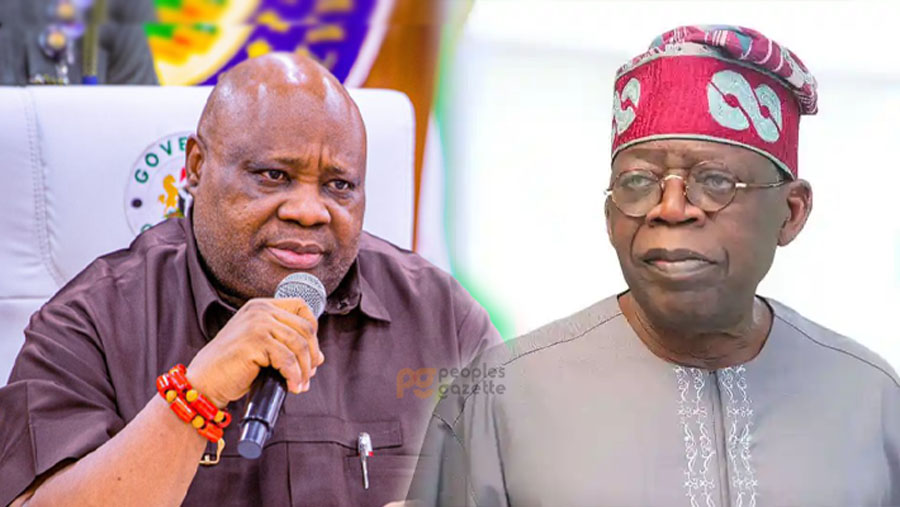
Osun PDP Lawmakers Endorse Tinubu for 2027, Back Adeleke Re-Election
Lawmakers of the Osun State House of Assembly elected on the platform of the Peoples Democratic Party (PDP) have endorsed President Bola Ahmed Tinubu for the 2027 presidential election, while also declaring their support for Governor Ademola Adeleke’s re-election bid in 2026.
The endorsement was announced at a joint meeting of the PDP lawmakers in Osogbo, where they said the decision was driven by what they described as the need for political stability, continuity in governance, and sustained development at both the state and federal levels.
Speaking on behalf of the lawmakers, the Speaker of the Osun State House of Assembly, Adewale Egbedun, said the endorsement of President Tinubu was based on his administration’s policies and interventions, which, according to them, have had a positive impact on Osun State and the South-West region.
READ ALSO:
- MACBAN Rejects Terrorism Allegations, Warns Against Stigmatisation
- Customs Seize Cocaine Worth N1bn Along Nigeria–Benin Corridor
- Security Row: El-Rufai Accuses Ribadu of Procuring Dangerous Chemicals
Egbedun noted that backing President Tinubu for a second term would strengthen federal-state collaboration, especially in the areas of infrastructure development, security, and economic reforms, while also ensuring continued federal presence in Osun.
The lawmakers also unanimously passed a vote of confidence in Governor Adeleke, citing what they described as his people-oriented leadership style, commitment to workers’ welfare, and ongoing projects across key sectors, including education, healthcare, road infrastructure, and local government development.
According to the PDP legislators, Governor Adeleke’s administration has prioritised inclusive governance, fiscal discipline, and the restoration of public confidence in government, adding that these achievements make him deserving of a second term in office.
They dismissed suggestions that endorsing President Tinubu, who belongs to a different political party, contradicts their loyalty to the PDP, arguing that the move reflects political pragmatism and the overriding interest of Osun State.
The lawmakers stressed that their decision does not weaken the PDP in Osun but rather positions the state to benefit from harmonious political alignment between the state and the federal government.
Reaffirming their commitment to the PDP, the legislators said they would continue to work for the party’s success in future elections while supporting leadership choices they believe would advance peace, stability, and development in Osun State and Nigeria at large.
Osun PDP Lawmakers Endorse Tinubu for 2027, Back Adeleke Re-Election
Politics
Ex-APC Chairman Ganduje Discusses Kano Politics, National Leadership Plans
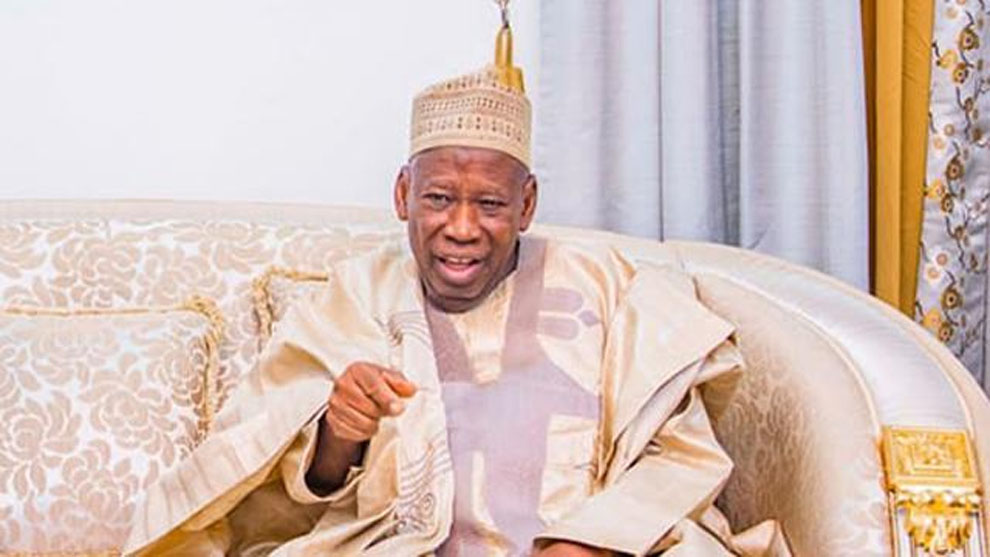
Ex-APC Chairman Ganduje Discusses Kano Politics, National Leadership Plans
Former All Progressives Congress (APC) National Chairman and ex-Kano State Governor, Abdullahi Umar Ganduje, has opened up about life after leaving office, his ongoing projects, and the future of Kano State politics in an exclusive interview.
Ganduje described life after office as less stressful but still busy, noting that he remains actively involved in party politics both in Kano and Abuja. He explained that while the pressures of leadership are gone, politics and governance never truly end. “You can’t just stop, since politics and governance never really end,” he said.
The former governor revealed that he is spending much of his time writing books to keep his mind sharp and contribute to knowledge-based politics. Among his current projects are “Abuja: Evolutionary Development of a City in Nigeria’s Capital Territory,” “Progressive Leadership and Sustainability of Democracy in Nigeria,” and “Progressive Party Ideology and Philosophical Direction.” Ganduje stressed the importance of education, research, and ideology in sustaining democracy and shaping effective governance.
READ ALSO:
- DPO Killed in Katsina Gun Duel With Bandits
- Kannywood Actress Samha Inuwa Jailed for Defacing ₦1,000 Note in Kano
- INEC May Adjust 2027 Election Dates Over Ramadan Concerns
Reflecting on his early life, Ganduje highlighted how knowledge, experience, and patience shaped his political journey. From attending primary school in a remote village to earning a PhD from the University of Ibadan, he emphasized that education and persistence were crucial in achieving his goals. His career spanned roles as local government secretary, commissioner, deputy governor, governor, and APC national chairman, providing him with extensive governance experience from the grassroots to the national level.
On Kano politics, Ganduje expressed pride that his predictions of a progressive return to APC in the state have been realized. He highlighted APC’s success in delivering the highest number of delegates and votes for President Bola Ahmed Tinubu during primaries and defeating the PDP in the general election by over 500,000 votes.
Addressing the Kwankwasiyya Movement and former governor Rabiu Musa Kwankwaso, Ganduje dismissed claims that the movement could challenge APC dominance in Kano. “The Kwankwasiyya Movement will not have any impact. Even though you see large crowds, the APC can mobilize bigger numbers if we choose,” he said, stressing that public sentiment favors APC due to concerns over the use of state resources for national ambitions by opposition leaders.
Ganduje also left the door open for political reconciliation with Kwankwaso, provided they share a common vision for the state and country. “I am ready. Politics is about interests. There are no permanent enemies or friends… What matters is what we want to achieve,” he said.
On the national stage, Ganduje addressed fears that northern Nigeria may not support President Tinubu in 2027, dismissing the notion as wrong. He emphasized that most Northerners accept the rotation of the presidency and are supportive of Tinubu completing his term. “Politics will always have noise, but the reality on the ground is different,” he added.
Ganduje’s reflections highlight the intersection of political strategy, education, and leadership experience in shaping both personal legacy and the future trajectory of Kano State and Nigerian politics.
Ex-APC Chairman Ganduje Discusses Kano Politics, National Leadership Plans
-

 News1 day ago
News1 day agoSaudi Arabia Confirms Sighting of Ramadan Crescent, Fasting Begins Wednesday
-

 metro1 day ago
metro1 day agoLagos Woman Shares Ordeal After Alleged Rape, Sparks Nationwide Outcry
-

 metro2 days ago
metro2 days agoUS Freezes Assets of Eight Nigerians Over Boko Haram, ISIL, Cybercrime Links
-

 News1 day ago
News1 day agoRamadan Begins in Nigeria as Sultan Confirms Crescent Sighting
-
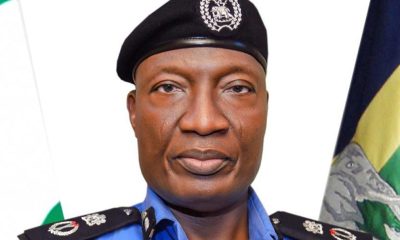
 Entertainment2 days ago
Entertainment2 days agoMystery in Lekki: Police Probe Death of Two Nollywood Crew Found Lifeless in Parked Car
-

 metro2 days ago
metro2 days agoTerror in Lagos Traffic: Cutlass Gang Unleashes Mayhem on Mile 12–Ketu Road
-
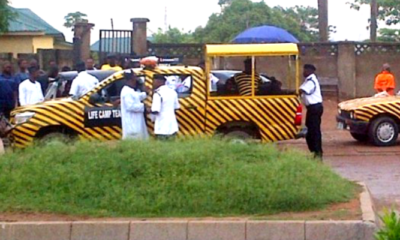
 Auto2 days ago
Auto2 days agoAppeal Court Ruling on VIO Limited to Abuja, Not Lagos — LASG
-
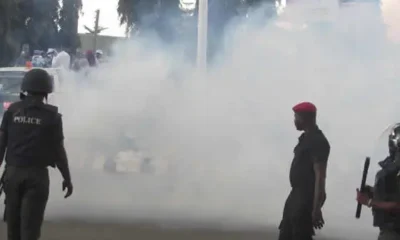
 News2 days ago
News2 days agoTeargas, Chaos at EFCC as El-Rufai’s Supporters Clash with Security Operatives



